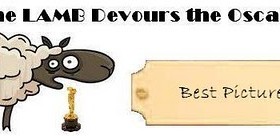Hugo is based on Brian Selznick’s novel The Invention of Hugo Cabret, adapted for the screen by John Logan (Rango) and directed by Martin Scorsese (Taxi Driver, The Departed). Set in Paris in 1931, and following a glorious opening shot, which sweeps across a train station, we are introduced to Hugo Cabret (Asa Butterfield), taken in by his uncle (Ray Winstone), an alcoholic responsible for maintaining the clocks in the railway station, when his father (played by Jude Law) dies in a museum fire. He was a master clockmaker who had started an ambitious project – repairing a broken automaton (a mechanical man) – before he died. When Hugo’s uncle disappears, he is left alone within the walls of the station were he tends to the clocks alone, steals food and searches for unique parts to fix the automaton.
His desperate lengths to fix the machine are shattered when he is caught stealing by the owner of a toy store, Georges Melies (Ben Kingsley), and his notebook containing the blueprints for the automaton is confiscated. Heartbroken, he pleads with the man and is instructed to earn the notebook back by assisting around the store. He also finds an ally in Georges’ goddaughter, Isabelle (Chloe Grace Moretz). Hugo introduces Isabelle to the magic of cinema (which he and his father frequented) and she assists Hugo by supplying the missing piece to the automaton, and together they uncover the secret about Papa Georges grand past – and as a result ensuring that his legend is never forgotten.
I won’t go on too much about the acting, because none of the cast is nominated, but I did find Asa Butterfield and especially Sir Ben Kingsley, to be excellent. Kingsley’s heart-wrenching portrayal of a broken machine, who needed his purpose in life to be rekindled, would have brought many viewers to tears. The performances are so important to this story (even Sacha Baron Cohen, whose teleconferencing with his superior was hilarious), and considering the film was shot in 3D, and I think they were all very effective.
Hugo is beautifully produced, and I think it is the technical categories that it has the best chance of winning some awards. Howard Shore’s incomparable work with the score is tremendous, while Robert Richardson’s wonderful cinematography (enhanced by impressive digital effects and some of the cleverest use of 3D I have seen to date), the intricate set designs (the recreation of the 1930’s Parisian station, Hugo’s interior lair, and the complex system of cogs that drive the clocks) and the costuming, will no doubt have left viewers in awe.
Just like there are pieces that fit together to make up the machine that is a film – sets, costumes, performers, and a projector to screen it – for Scorsese, there are filmmakers and previous eras of cinema (some all-but forgotten) that are pieces to who Scorsese is today as a filmmaker. He is trying to say, through the story, that he would not be the filmmaker he is today without Georges Melies existing before him, or Powell and Pressburger (Scorsese’s primary influences) decades later. There is a lovely line spoken by Hugo, as he is declaring what cinema meant for him and his father: “My father used to say that going to the movies was like watching your dreams in the middle of the day” or something to that extent. It really is incredible how accurate that is, and Scorsese has tried to replicate exactly that with his film – while educating viewers on the earliest pioneers of cinema, and where the magic of cinema, as we know it today, originated from. It is for this reason that Hugo could win over voters and win more awards than expected – but it is unfortunate that The Artist does that too.
What I think lets Hugo down is the often-uneven story Scorsese and screenwriter John Logan are trying to convey. The dual agendas, telling a child’s fantasy adventure, while informing viewers about the magic of the dawn of cinema, and how a fascination with how things work can lead to such wonderful creations as the cinema, don’t quite gel as well as intended. Hugo’s mystery is solved pretty quickly (and easily), and then his story is sidelined for Melies’ in the second half. Some of the supporting characters in the station felt like distractions at times – and the convenient arrival of Michael Stuhlbarg’s character was peculiar. I also think the film gets stuck in no man’s land (at times) because it isn’t really a kids’ film – but it is also hard for adults to relate to, considering the lead protagonist is a child. But movie buffs, and viewers enchanted by cinema, will no doubt be swept up in the magic. Despite a few qualms, I was won over too.
So, from Hugo’s 11 nominations – I predict it will at least win Art Direction and Costumes, but I think it also has a shot at Original Score, Sound Mixing and Sound Editing. I think it will lose to The Artist for Best Picture and Best Director, Moneyball or The Descendants for Best Adapted Screenplay, The Tree of Life for Cinematography, The Artist or The Girl With the Dragon Tattoo for Editing and Rise of the Planet of the Apes for Visual Effects.







it does look like a stunning film. i missed this in theaters but i definitely want to see it now.
Great review Andy. I think I’ll be happy if it wins some technical awards, since the visual are the areas where the film really shines.
I share some of those same story qualms about Hugo as well, Andy, but yes, as a love letter to cinema, this did get the ol’ tear ducts working a couple times.
I was surprised Kingsley didn’t get nominated; his performance really got you to feel for the poor guy, even when he was being a complete jerk. At least you knew that he was hurting, and not coming from a bad-guy place. Part of that is certainly John Logan’s screenplay slowly piecing together the Melies’ backstory, but another important part is how Kingsley managed to get across how his character is being that way out of self-defense (wanting to bury his past). Anyway, good stuff, Andy!